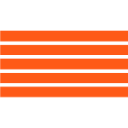FMP

Aehr Test Systems
AEHR
NASDAQ
Aehr Test Systems provides test systems for burning-in and testing logic, optical, and memory integrated circuits worldwide. It offers products, such as the ABTS and FOX-P families of test and burn-in systems and FOX WaferPak Aligner, FOX-XP WaferPak Contactor, FOX DiePak Carrier, and FOX DiePak Loader. The ABTS system is used in production and qualification testing of packaged parts for lower power and higher power logic devices, as well as various common types of memory devices. The FOX-XP and FOX-NP systems are wafer contact and singulated die/module test and burn-in systems used for burn-in and functional test of complex devices, such as memories, digital signal processors, microprocessors, microcontrollers, systems-on-a-chip, and integrated optical devices. The FOX-CP system is a single-wafer compact test and reliability verification solution for logic, memory, and photonic devices. The WaferPak Contactor contains a unique full wafer probe card capable of testing wafers up to 300mm that enables IC manufacturers to perform test and burn-in of full wafers on Aehr Test FOX systems. The DiePak Carrier is a reusable, temporary package that enables IC manufacturers to perform final test and burn-in of bare die and modules. Aehr Test Systems was incorporated in 1977 and is headquartered in Fremont, California.
8.52 USD
0.385 (4.52%)
Operating Data
Year
2020
2021
2022
2023
2024
2025
2026
2027
2028
2029
Revenue
20.34M
15.6M
23.19M
79.86M
82.11M
108.42M
143.17M
189.06M
249.65M
329.66M
Revenue %
-
-23.3
48.68
244.31
2.81
32.05
32.05
32.05
32.05
Ebitda
-53.61M
53.29M
-35.12M
1.03M
-8.56M
-23.66M
-31.25M
-41.26M
-54.49M
-71.95M
Ebitda %
-263.61
341.63
-151.41
1.3
-10.43
-21.83
-21.83
-21.83
-21.83
Ebit
-54.24M
52.64M
-42.62M
-20.55M
-29.85M
-35.15M
-46.41M
-61.29M
-80.93M
-106.86M
Ebit %
-266.67
337.44
-183.74
-25.73
-36.35
-32.42
-32.42
-32.42
-32.42
Depreciation
622k
653k
7.5M
21.59M
21.28M
20.07M
26.5M
34.99M
46.2M
61.01M
Depreciation %
3.06
4.19
32.34
27.03
25.92
18.51
18.51
18.51
18.51
EBIT (Operating profit)(Operating income)(Operating earning) = GROSS MARGIN (REVENUE - COGS) - OPERATING EXPENSES (R&D, RENT) EBIT = (1*) (2*) -> operating process (leverage -> interest -> EBT -> tax -> net Income) EBITDA = GROSS MARGIN (REVENUE - COGS) - OPERATING EXPENSES (R&D, RENT) + Depreciation + amortization EBITA = (1*) (2*) (3*) (4*) company's CURRENT operating profitability (i.e., how much profit it makes with its present assets and its operations on the products it produces and sells, as well as providing a proxy for cash flow) -> performance of a company (1*) discounting the effects of interest payments from different forms of financing (by ignoring interest payments), (2*) political jurisdictions (by ignoring tax), collections of assets (by ignoring depreciation of assets), and different takeover histories (by ignoring amortization often stemming from goodwill) (3*) collections of assets (by ignoring depreciation of assets) (4*) different takeover histories (by ignoring amortization often stemming from goodwill)